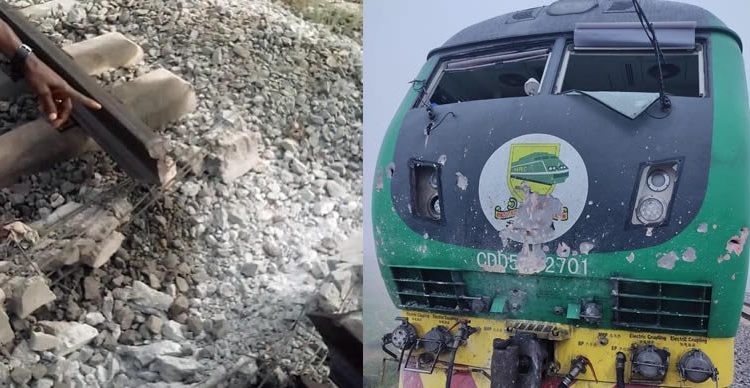
It’s been two years since the devastating attack on the Abuja-Kaduna train, yet justice remains out of reach for the victims and their families. The assault, which occurred on March 28, 2022, at around 7:45 pm, saw terrorists ambush a train carrying passengers from Abuja to Kaduna.
According to the Nigerian Railway Corporation (NRC), the train carried 362 passengers. Tragically, at least 8 people lost their lives, and 168 were abducted. The attackers emerged from the Kateri-Rijana forest in Kaduna State, causing chaos by detonating explosives that derailed the train. Subsequently, gunmen descended upon the train, shooting at passengers and abducting 62 individuals.
Thankfully, 186 passengers were unharmed. The hostages were released in batches, with the final group regaining freedom on October 5th after 190 days in captivity. Reports suggest that some hostages paid a ransom for their release.
Survivors have recounted their horrific experiences, enduring hunger and thirst while held captive. Mr Hassan Usman, one survivor, highlighted the dire conditions they faced, emphasizing the lack of food and shelter during their ordeal.
Among the tragic losses were individuals with promising futures. Chinelo Megafu, a young dental surgeon, was one such victim whose dreams were abruptly cut short.
Additionally, Abdu Isa Kofar Mata, a respected Director of the National Board of Technical Education, lost his life in the attack. Farida Sule Mohammed, daughter of prominent PRP figure Mallam Sule Mohammed, was also among the victims. The tragedy further claimed the lives of Musa-Lawal Ozigi, Secretary-General of the Trade Union Congress, and Akin Akinsola, Chairman of the TUC’s Kwara State chapter.
READ ALSO: Lekki Phase 1 Residents Protest over Epileptic Power Supply, Calls for EKEDC Removal
This isn’t the first attack on the Abuja-Kaduna route. Similar incidents occurred in October 2021, raising concerns about the government’s efforts to secure critical transportation routes. Promises of military escorts for trains and procurement of surveillance equipment have yet to materialize, leaving passengers vulnerable.
Despite the passage of time, the Nigerian government has made no significant progress in apprehending the perpetrators. This lack of action raises concerns about the effectiveness of security forces and the Commander-in-Chief’s ability to combat terrorism and protect citizens.
This tragic event underscores Nigeria’s broader insecurity challenges and the pressing need for concrete action to safeguard citizens. As the nation marks this solemn anniversary, the cry for justice and reforms to prevent future tragedies grows louder.
BY: Ibe Favour Kalu & Mbam Patrick








Leave a Reply